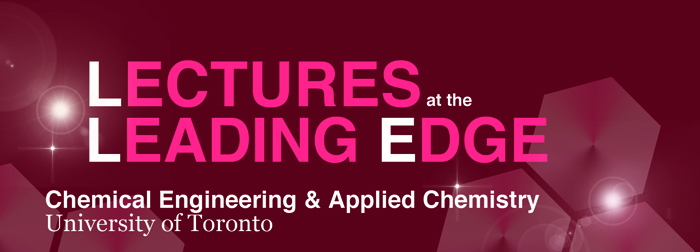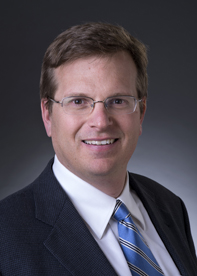
ALLEN ROBINSON
Carnegie Mellon University
THE SHALE GAS REVLUTION:
GREEN ENERGY OR A BRIDGE TO NOWHERE?
In the United States and around the globe, the rapid expansion of oil and natural gas production from shale and other tight geologic formations brings significant opportunity along with questions and controversy about potential effects on people and the environment. This talk will begin with a brief overview of the shale gas revolution, its implications for the United States energy supply, and the key technologies behind it (high volume hydraulic fracturing and horizontal drilling). I will then explore some of the controversies surrounding the potential environmental impacts and benefits of shale gas development, focusing air quality and climate. I will present results from chemical transport modeling and field measurements to illustrate the potential impacts of natural gas production on local and regional air quality, including ozone, fine particulate matter, and air toxics. I will also discuss several recent national-scale measurement campaigns to improve methane emissions inventories (methane is the dominant component of natural gas and a powerful greenhouse gas). The results reveal that superemitters (abnormally high emitting sources) play an important role in both the air quality and climate impacts of natural gas development.
Date/Time |
Location 200 College Street Wallberg Building Room 116 |
 ALLEN ROBINSON is the Raymond J. Lane Distinguished Professor and Head of the Department of Mechanical Engineering at Carnegie Mellon University. He is also a Professor in the Department of Engineering and Public Policy and a member of the Center for Atmospheric Particle Studies. Dr. Robinson's research examines the impact of emissions from energy systems on air quality and global climate. A major focus is the atmospheric transformation of particulate matter emissions from cars, trucks, and other combustion system. He is currently serving on the Research Committee of the Health Effects Institute, the Environmental Protection Agency Clean Air Scientific Advisory Committee (CASAC) Air Monitoring and Methods Subcommittee. He holds a B.S. in Civil Engineering from Stanford University (1990), and an M.S. (1993) and Ph.D. (1996) in Mechanical Engineering from the University of California at Berkeley.
ALLEN ROBINSON is the Raymond J. Lane Distinguished Professor and Head of the Department of Mechanical Engineering at Carnegie Mellon University. He is also a Professor in the Department of Engineering and Public Policy and a member of the Center for Atmospheric Particle Studies. Dr. Robinson's research examines the impact of emissions from energy systems on air quality and global climate. A major focus is the atmospheric transformation of particulate matter emissions from cars, trucks, and other combustion system. He is currently serving on the Research Committee of the Health Effects Institute, the Environmental Protection Agency Clean Air Scientific Advisory Committee (CASAC) Air Monitoring and Methods Subcommittee. He holds a B.S. in Civil Engineering from Stanford University (1990), and an M.S. (1993) and Ph.D. (1996) in Mechanical Engineering from the University of California at Berkeley.
| For more info: uoft.me/lle2016-17 |
Websites of Interest
- University of Toronto
- Faculty of Applied Science & Engineering
- Department of Chemical Engineering & Applied Chemistry
